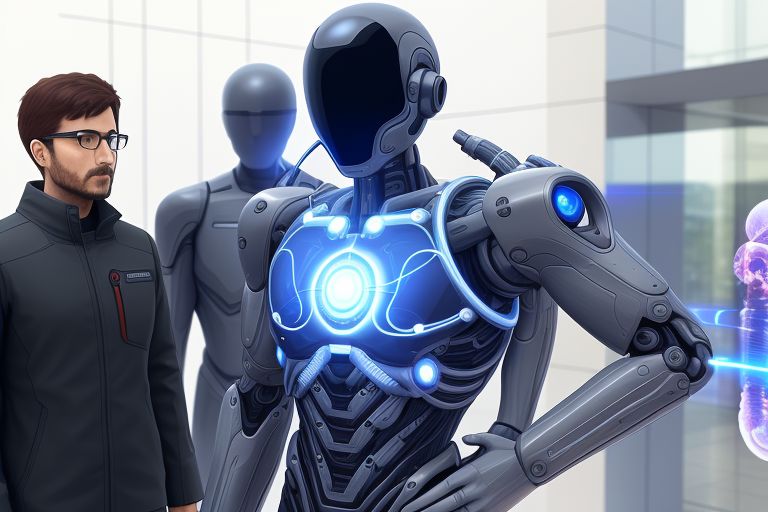The concept of augmented humanity, which blends technology and human biology, opens a new frontier in the evolution of human capabilities. This interdisciplinary approach, at the intersection of bioengineering, medicine, and information technology, aims to enhance or supplement human functions through the integration of technological advancements directly into the human body. The implications of such a fusion are vast, touching on health, identity, ethics, and the future trajectory of human evolution.
Enhancements in Health and Medicine
One of the most immediate applications of augmented humanity is in health and medicine. Prosthetics have evolved from basic mechanical devices to sophisticated bionic limbs that can be controlled by the wearer’s neural impulses, closely mimicking the functionality of natural limbs. Furthermore, implants like cochlear implants for restoring hearing or retinal chips for sight highlight the potential for technology to compensate for sensory deficits.
Cognitive Enhancement
Beyond physical augmentation, there’s a growing interest in cognitive enhancement. Brain-computer interfaces (BCIs) represent a significant leap, potentially allowing direct communication between the human brain and external devices. This could enable not just the restoration of lost functions but the enhancement of memory, learning speed, and even the integration of direct data access within the brain, reminiscent of science fiction.
Ethical Considerations
The fusion of technology and biology raises profound ethical questions. The concept of augmented humanity blurs the lines between natural and artificial, challenging traditional notions of identity and human capabilities. There’s also the concern of accessibility and inequality; such technologies could widen the gap between those who can afford them and those who cannot, leading to a new form of digital divide. Moreover, privacy issues emerge, especially with devices that can access or even transmit one’s thoughts or sensory experiences.
Societal Impact
The societal impact of augmented humanity is broad. On one hand, it promises to push the boundaries of human experience, offering new ways to interact with the world and each other. On the other, it could alter the very essence of what it means to be human. As such, the development and integration of these technologies require careful consideration of their social, ethical, and legal implications.
Future Directions
Looking forward, the trajectory of augmented humanity is likely to be shaped by ongoing advancements in technology and biology. The integration of artificial intelligence with human intelligence, the refinement of genetic engineering, and the development of nanotechnology could further blur the distinctions between biological and technological enhancements. This path towards an increasingly augmented humanity not only promises to redefine human potential but also challenges us to reconsider the values and principles that define human dignity and identity.
In conclusion, the fusion of technology and human biology through augmented humanity is a testament to human ingenuity and ambition. While it holds remarkable potential to overcome biological limitations and enhance human capabilities, it also prompts a reevaluation of ethical, social, and philosophical foundations. As this field evolves, it will be crucial to balance innovation with caution, ensuring that the benefits are accessible to all and that they enhance, rather than diminish, the human experience.



